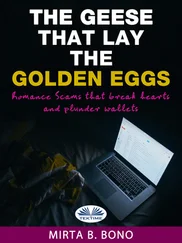‘And?’ Vianello asked.
‘His mother refused to talk to me. The women told me she’s lived in the neighbourhood a long time. And it
seems she doesn’t have the best reputation.’
‘In a woman, that always means one thing,’ Vianello observed.
‘True enough,’ Brunetti agreed, then went on. ‘I must have pushed too hard with them because at a certain point they both stopped talking, and I knew I wouldn’t be able to get anything more out of them.’
‘Which means?’ Vianello asked in the same level voice.
‘That we need someone else to ask them questions, someone less threatening.’
‘What makes you think they’d talk to Nadia?’ Vianello asked, not bothering to ask for confirmation that this was the favour Brunetti wanted. ‘She doesn’t live near there.’
‘I know. But she’s Venetian: anyone who listens to her knows that.’ Vianello looked doubtful, so Brunetti added, ‘And she’s simpatica . People trust her instinctively: I’ve seen it happen.’ Before Vianello could object, Brunetti added, ‘None of the female officers is old enough for people to trust them.’
Vianello gazed away. Brunetti watched the Inspector consider the idea and its implications. Though she would be, in a sense, working for his own employers, even Vianello was not free of the citizen’s instinctive distrust of the state. Brunetti watched his friend as he contemplated the ways Nadia might be put in the public eye, how a record of what she heard and reported might somehow be used against her and, ultimately, against him.
Brunetti thought he saw the instant when Vianello’s face registered the thought of Lieutenant Scarpa and the consequences of his learning of Nadia’s involvement – unauthorized involvement – in a police investigation. Immediately after – there was not even the beating of a heart – Vianello said, ‘I think I’d like to suggest an alternative candidate.’
Brunetti ran through the list again, this time even considering his colleague, Claudia Griffoni, only to exclude her at once because she was Sicilian. ‘Who?’ he finally asked.
‘Just as you said, “ una donna simpatica e veneziana ”.’ With a smile, Vianello added, ‘And this one lives in the neighbourhood.’
Baffled, Brunetti wondered if Vianello had some other branch of the service in mind. Was there a woman Carabiniere who could be enlisted to help them? He shook his head as a sign of his confusion and said, ‘Tell me.’
‘Paola,’ Vianello said, and, as Brunetti’s face made it evident he still did not understand, the Inspector added, ‘Your wife.’
The word ‘but’ formed itself in Brunetti’s mind. Luckily, he did not speak it, for he realized he would do so only in the sentence that insisted he could not ask his wife to do such a thing. Or would not. He looked away and then back at his friend. ‘I see,’ he said, admitting the truth.
Brunetti was silent, as if to allow a sound, or a smell, to dissipate, and then he said, ‘There’s no record of Davide Cavanella’s birth.’
‘If he’s Venetian, that’s hard to believe,’ Vianello said.
‘He could have been born anywhere,’ Brunetti replied. ‘His mother’s from the neighbourhood and she speaks Veneziano, but that doesn’t mean he had to be born here.’
‘How long have you seen him around?’ Vianello asked.
‘Ten, fifteen years.’
Vianello glanced away, taking this in, then asked, ‘Has she started looking in other places?’ He didn’t bother to name Signorina Elettra nor to suggest what the other places might be.
‘Pucetti’s working on it.’ Before Vianello could express his surprise, Brunetti explained: ‘Baptism records, health card, school records, pension for him and for his mother, hospital records,’ then added, ‘Simple things,’ thus acknowledging that he had left the extra-legal explorations to Signorina Elettra.
‘There’s no getting away from them, is there?’ Vianello said in a voice slowed by deep reflection. Before Brunetti could ask, the Inspector continued, ‘They can go into my bank account now and find out where I spend my money and what I spend it on. Or they can check my credit card and see what I’ve been buying.’
Brunetti opened his mouth to speak, but Vianello held up his hand to stop him. ‘I know what you’re going to say: that we get and use the same information.’ He smiled at Brunetti, reached over to pat his arm, as if to persuade his friend that he was not about to begin raving.
‘Think of the chip in our telefonino,’ Vianello went on. ‘It leaves a record of where we go. Well, where it goes.’ Again, he held up his hand. ‘I know. We use that information, too. But who leaves his telefonino behind? Even that fool who killed his wife kept it in his pocket when he dumped her in the woods,’ he said, referring to a recent case they had solved in no time because of this very simple error on the part of the murderer.
‘Then what are you talking about?’ Brunetti asked.
‘That the way we think about it has changed, and we don’t question it. We’ve come to think it’s normal that other people know what we’re buying or reading or where we’ve been.’ Vianello paused, giving Brunetti a chance to object.
He did not, so Vianello added, ‘And the internet? Every time we look at something, we leave a permanent record behind: that we read it or glanced at it, or bought it or tried to buy it, or, for all I know, looked at the timetable for going there.’
Brunetti was unsettled by the feeling that he had looked at another person but seen what he saw in the mirror every morning, heard a voice speaking and recognized it as his own. To the best of his knowledge, he had never left traces behind when breaking a law. He had, however, grown increasingly nervous about the red, howling trail of law-breaking that Signorina Elettra might have left behind her. It wouldn’t even have to be Lieutenant Scarpa who discovered it for her – and anyone connected with what she had done – to be ruined: a well-intentioned journalist could land them all in court, disgraced and unemployed, and without a future.
He pushed this thought away, as he had so many times over the years. ‘This won’t get us anywhere,’ he said.
Like the other partner in an old marriage who by now knew all the patterns, Vianello pursed his lips and gave a half-tilt of his head. ‘Let’s call Pucetti, then, and see what he’s found.’
As it turned out, the young officer had found nothing. Like Dottor Rizzardi, Pucetti had failed to find evidence of the passage through life of Davide Cavanella: he seemed, as far as officialdom was concerned, to have sprung into life only by leaving it. Before his name was written on the form that accompanied his body to the morgue at the Ospedale Civile, it had not been entered in any official register kept by the city of Venice. There was no birth certificate; the files of the Church had no registry of his baptism or first communion. He had not attended school in the city, neither the public grammar schools nor the special school in Santa Croce for deaf children. He had never been issued a carta d’identità ; he had never been registered with the health service,
nor had he ever been in hospital. He had never applied for a driver’s licence, passport, gun permit, or hunting licence.
Knowing little about the dead man, Pucetti had
also searched for evidence of his marriage or the birth
of his children, and in those offices had found the same void.
When Pucetti, sitting beside Vianello in front of Brunetti’s desk, had finished his list of non-information, the three men sat in silent amazement until Brunetti said, speaking to Vianello, ‘It seems some people can still slip through the net.’
Читать дальше












